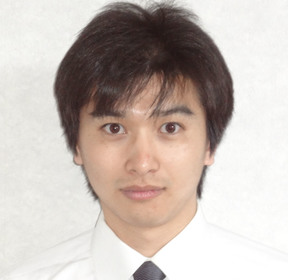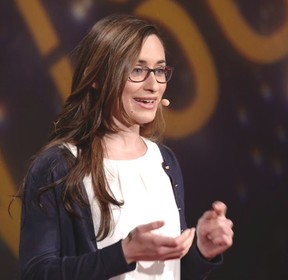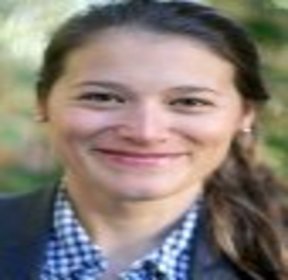Keynote Forum
Satoshi Ninagawa
JapanTitle: Establishment of N-glycan trimming pathway in the endoplasmic reticulum
Abstract:
Proteins misfolded in the endoplasmic reticulum (ER) are recognized, delivered to retrotranslocation channels, dislocated from the ER to the cytosol, and ubiquitinated and degraded by the proteasome: a pathway collectively termed ER-associated degradation (ERAD). In the glycoprotein ERAD (gpERAD) pathway, two-step mannose trimming from Man9GlcNAc2 (M9) produces oligosaccharides with the α1,6-mannose bond exposed, which is recognized by the lectin ERAD component for subsequent disposal. In mammals, how nine mannoses are trimmed in the ER had been discussed but unclear, especially concerning the enzymes that conduct the trimming. MAN1B1 (ER mannosidase I) with a mannosidase homology domain (MHD) was a primary candidate for the trimming from M9 to M8B, but it was clearly demonstrated that endogenous MAN1B1 localized in the Golgi (Pan et al., 2011 MBoC), not in the ER. Other candidates were EDEM1, EDEM2 and EDEM3 containing MHD, of which the enzymatic activities were ambiguous. To investigate functions of endogenous EDEM proteins, we constructed EDEM1, EDEM2 and EDEM3 KO cell lines for both in chicken and human. Comprehensive cellular N-glycan profiling showed strong enzymatic activities of EDEM family proteins, and suggested a new mannose trimming model: EDEM2 performs the trimming from M9 to M8B, and EDEM3 and EDEM1 from M8B.
Biography:
Dr. Satoshi Ninagawa is an assistant professor appointed in 2018 at Kyoto University in Japan. He received his M. S. (2007) and Ph. D. (2011) degrees in Dr. Kazutoshi Mori’s laboratory in the Graduate school of Science at Kyoto University. Except from 2014 to mid-2015 while he was a postdoctoral fellow in Dr. Koichi Kato’s laboratory in Okazaki Institute for Integrative Bioscience, he did most of his postdoctoral research as a fellow in Dr. Mori’s laboratory. He received the Japan Society of Carbohydrate Research Incentive Award and Young Investigator Award from The Japanese Biochemical Society in 2020, Cell Structure and Function Paper Award in 2017 and Japan Society for Cell Biology Young Scientist Award for Presentation in 2016.
Laurence HECQUET
FranceTitle: Extending the reaction toolbox for C-C bond formation and cleavage : biocatalytic applications of Transketolase
Abstract:
Transketolase (TK), a thiamine diphosphate dependent enzyme, transfers a two carbon ketol unit from a donor to an aldehyde acceptor. While in vivo in the pentose phosphate pathway, this enzyme interconverts phosphorylated ketoses and aldoses in reversible reactions, numerous in vitro biocatalytic applications showed that this enzyme catalyzes the synthesis of various chiral hydroxyketones in irreversible reactions. Recently, we characterized the first thermostable TK from a thermophilic microorganism, Geobacillus stearothermophilus, offering robustness and broad synthetic potential.1 Different ways are currently develop to improve the TK reaction process (immobilization, cascade reaction) and to broaden the TK substrate and product scope (engineering by directed evolution). The applications of wild-type and variant TKs for the synthesis of various chiral hydroxyketones, an important class of compounds in different fields (food, pharmaceuticals, fine chemicals) will be presented.
Biography:
Laurence Hecquet (Full Professor since 2000, PhD) develops her research activities at the Institute of chemistry of Clermont-Ferrand (ICCF, UMR 6296), University Clermont Auvergne (UCA), France. Her research focuses on the enzymatic synthesis of chiral compounds particularly by stereoselective carboligation catalyzed by transketolase (TK), a thiamine diphosphate (ThDP) dependent enzyme. Her group has recently discovered and engineered by directed evolution a novel thermostable TK from Geobacillus stearothermophilus. The best TK variants efficiently improved wild type TK activity toward pyruvate and higher aliphatic homologues as nucleophiles and toward a large range of polyhydroxylated or aliphatic aldehydes as electophiles. The biocatalytic applications led to various chiral hydroxyketones with high stereocontrol. The long-term goals of her works are to broaden the substrate spectra of TK and of other ThDP enzymes and to optimize the biocatalytic processes in developping multienzymatic cascade reaction for obtaining new chiral compounds of biological interests.
Speakers
Marion Lorillire
FranceTitle: Enzymes for green and sustainable industrial processes: Example of the development of enzymatic cascades involving Transketolase for the synthesis of rare valuable (3S)-ketoses
Abstract:
Nowadays, it is more essential than ever to develop sustainable and environmentally friendly industrial processes, that meet the 12 principles of Green Chemistry, stated in 1998 . “White biotechnology” enables to fulfil these criteria, through the use of biological catalysts, i.e. whole microorganisms or isolated enzymes, to synthesize high added value compounds, at industrial scale. For more than 30 years, major advances have been made in the fields of genetic, bio-informatic, protein engineering, robotic, process engineering and materials science, allowing humans to adopt this revolutionary and diverse discipline, for the production of useful chemicals, including medicinal drugs, polymers, biofuels, cosmetics, detergents, but also in the textile and paper industries.
Biography:
Marion Lorillière completed her PhD in 2017 at the Institute of Chemistry of Clermont-Ferrand in France, in Pr. L. Hecquet’s group, in the field of Biocatalysis. Her research focused on the enzymatic synthesis of chiral compounds by stereoselective carboligation catalyzed by a novel thermostable transketolase (TKgst), a robust thiamine diphosphate (ThDP) dependent enzyme, expressed from Geobacillus stearothermophilus. Her main objectives were to broaden TKgst substrate spectrum by Directed Evolution, while improving TKgst reaction process, through the development of one-pot enzymatic cascades. From 2018 to 2019, she completed postdoctoral research in the French pharmaceutical group Servier, in Croissy-sur-Seine, in France. She aimed at developing biocatalytic reactions catalyzed by isolated enzymes and whole cells, as well as the screening of fungal strains, for the discovery of new chemical entities. Since 2019, she is currently working in the international group PMC Isochem, in Vert-le-Petit, in France, in the field of protein engineering, fermentation and biocatalysis.
Ana Maria Mora
ColombiaTitle: The Role of Enzymes in Cognitive Enhancers and the Implications of Intervention When Used as Smart Pills.
Abstract:
Learning is a complex process, that depends of many functions of the brain like memory, concentration, information processing, perception and language. As such, learning capacity can be diminished by age or conditions that alter these functions. Drugs devised to target and restore these abilities are called nootropics. Enzymes as biological catalysts come into play in many processes that directly or indirectly affect brain activity which makes them perfect candidates to manipulate in order to create nootropics. Promising efforts have already been conducted like BACE1 inhibition for reversing cognitive damaged caused by Alzheimer’s disease or acetyl and butyryl inhibitors cholinesterase to treat patients with moderate to mild AD. As nootropics get of out of the scope of disease treatment and enter the realm on human enhancement with the name of “smart pills”, the implications of enzyme intervention becomes relevant.
Biography:
My initial training is in Philosophy and Mathematics at the Universidad de los Andes (Bogotá, Colombia), where I specialized in Logic and Analytic Philosophy. I hold a Master in Philosophy (2005) and a PhD in Philosophy (2009) from the University Paris 1, Panthéon-Sorbonne.I am currently the leader of a research project on Aristotelian argumentation funded by the Knut and Alice Wallenberg Foundation.




